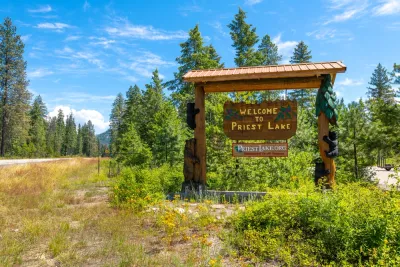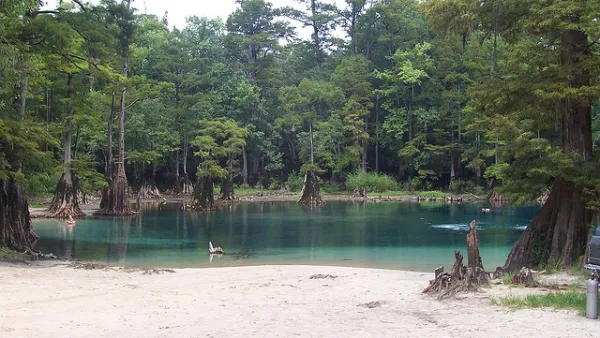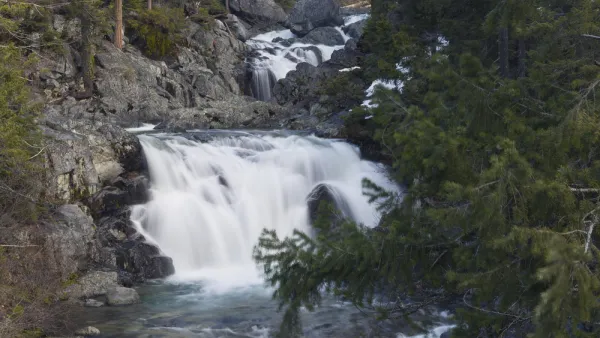The future of the Clean Water Act could look much different after fossil fuel interests and the Supreme Court done with it.

A bill designed to overhaul federal permitting processes was a controversial part of the deal that helped get the Inflation Reduction Act across the finish line. The expectation that the deal would eventually make it easier to build large federal infrastructure projects provoked loud debate. One one side, proponents argues that environmentalists would have to cede legal and regulatory ground to make it easier to develop new wind and solar power capacity. On the other side, opponents, including Senator Bernie Sanders, said the deal was coming at too high of a cost for the environment, and the main beneficiary of changes would be fossil-fuel interests, not clean energy.
The latest news reveals some of what the latter group was worried about, as provisions of the Energy Independence and Security Act of 2022, announced by Senator Joe Manchin last week, would take aim at the Clean Water Act—one of the most significant and highly contested environmental regulations in U.S. history.
According to an article by Maxine Joselow for the Washington Post, the bill “includes a provision that would modify Section 401 of the Clean Water Act, which gives states and tribes the authority to grant, deny or waive certification of permits to fill or dredge federally protected waters such as rivers and wetlands.”
According to the Washington Post’s investigation, Equitrans Midstream, which owns a 48.1 percent stake in the Mountain Valley Pipeline, which would carry natural gas more than 300 miles from West Virginia to Virginia, voiced support for changing the word “discharge” to “activity” in the Clean Water Act. The effect of this change and others is unclear, according to legal analysts cited in the article. Some expect more certainty; others expect some powers to reject permits outright because of the changes.
Simultaneously to these new questions about the future of the Clean Water Act, the Supreme Court is considering a case that could also undo the definitions central to the “Waters of the United States Rule,” as established by the previous court ruling of Rapanos v. United States. A separate article for the Washington Post by Robert Barnes provides more detail on the Supreme Court case, Sackett v. Environmental Protection Agency, which will enter oral arguments during the first week of October.
FULL STORY: Manchin eyes changes to Clean Water Act in permitting bill

National Parks Layoffs Will Cause Communities to Lose Billions
Thousands of essential park workers were laid off this week, just before the busy spring break season.

Retro-silient?: America’s First “Eco-burb,” The Woodlands Turns 50
A master-planned community north of Houston offers lessons on green infrastructure and resilient design, but falls short of its founder’s lofty affordability and walkability goals.

Delivering for America Plan Will Downgrade Mail Service in at Least 49.5 Percent of Zip Codes
Republican and Democrat lawmakers criticize the plan for its disproportionate negative impact on rural communities.

Test News Post 1
This is a summary

Test News Headline 46
Test for the image on the front page.

Balancing Bombs and Butterflies: How the National Guard Protects a Rare Species
The National Guard at Fort Indiantown Gap uses GIS technology and land management strategies to balance military training with conservation efforts, ensuring the survival of the rare eastern regal fritillary butterfly.
Urban Design for Planners 1: Software Tools
This six-course series explores essential urban design concepts using open source software and equips planners with the tools they need to participate fully in the urban design process.
Planning for Universal Design
Learn the tools for implementing Universal Design in planning regulations.
EMC Planning Group, Inc.
Planetizen
Planetizen
Mpact (formerly Rail~Volution)
Great Falls Development Authority, Inc.
HUDs Office of Policy Development and Research
NYU Wagner Graduate School of Public Service





























